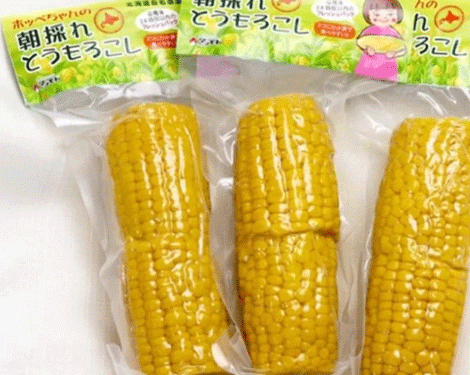Hoppichan Fresh Corn: A Farm-to-Table Success Story in Hokkaido
The Hoppichan Fresh Corn initiative, developed by Kobu Masei Co., Ltd. in collaboration with the White Farm in Hokuto City, Hokkaido, has seen remarkable success, with its entire stock selling out by late November 2024. This unique product, which utilizes B-grade corn—corn that does not meet typical market standards due to cosmetic imperfections—underscores the importance of reducing food waste while providing consumers with high-quality, fresh produce.
Product Details:
- Name: Hoppichan Fresh Corn 3-pack set
- Price: 972 yen (tax included)
- Contents: 2 pieces per bag, 3 bags per set
The corn used in this product is harvested within 24 hours of picking from the White Farm’s fields, ensuring optimal freshness. This farm, run by Mr. Toshiaki Shirai, has been focused on reducing pesticide use and producing high-quality vegetables, including special varieties like “Kam Tomato”. Their goal is to lower pesticide use to half of the conventional amount for their new “special cultivation” corn variety, thus providing a safer, tastier, and more sustainable product.
Collaboration and Innovation
Kobu Masei’s decision to partner with White Farm came from a mutual interest in diversifying food offerings beyond their core seaweed product lines, particularly in light of changes in marine ecosystems affecting seaweed supply. The collaboration began over four years ago, when Mr. Shirai, also a teammate in their local baseball club, introduced the idea of using excess, cosmetically imperfect corn for a new product.
Through the partnership, Kobu Masei utilized its existing processing facilities—originally designed for seaweed—to create vacuum-packed corn. This method preserved the taste and texture of freshly harvested corn, preventing loss due to transportation time. The vacuum packaging also addresses consumer demand for easy-to-use, ready-to-eat products, particularly for busy households or those with limited time for cooking, such as elderly and young families.
Sustainable Approach to Food Waste
The use of B-grade corn—corn that might otherwise be discarded—helps reduce food waste, aligning with global sustainability goals. The Hoppichan initiative not only supports local farmers but also creates market value for produce that might otherwise be considered waste. This approach is particularly relevant as global concerns over food security and waste management grow.
The success of the Hoppichan Fresh Corn project highlights the importance of innovative farm-to-table solutions in addressing food waste while providing consumers with high-quality products. As the product prepares for its next season, mid-August to early September 2025, it promises to continue its mission of reducing waste and providing fresh, locally sourced food. The collaboration between Kobu Masei and White Farm exemplifies how partnerships in agriculture can lead to sustainable practices and enhanced consumer trust in food quality.
Error





